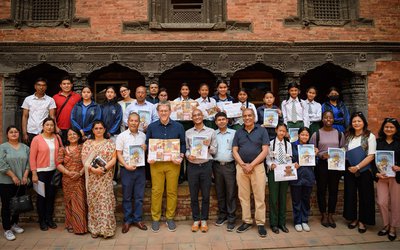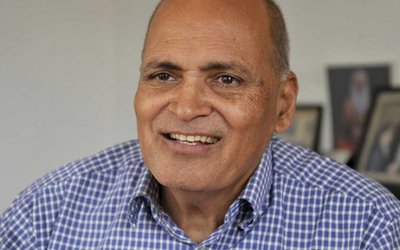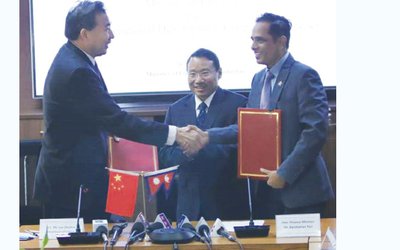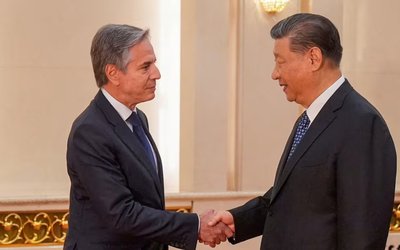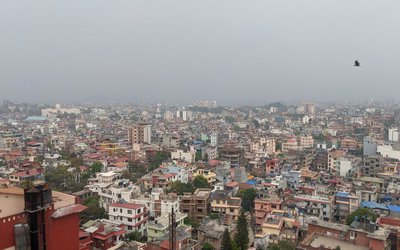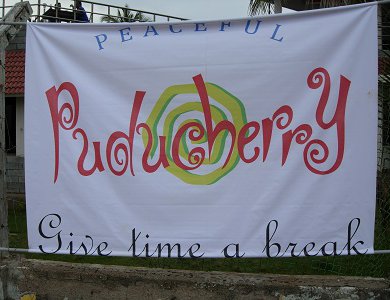
Pondicherry (named Puducherry in Tamil and Pondichéry in French) is a Union Territory located in the South of India. The town lies about 150 kilometers south of Chennai (Madras), India’s fourth largest city. Puducherry means 'new village' in Tamil language. Recently named Puducherry, the place has people speaking either Tamil or French. A very few people speak English and hardly anyone speaks Hindi. Since it is a coastal town, it offers a lot of beautiful beaches nearby.
This re-established, fascinating city was the former French colony with its elegant streets and attractive colorful houses. Being a small and quiet community of Tamil Nadu, it has taken down the Tamil culture. The pleasant atmosphere, excellent French-Indian and western restaurants attract most travelers to Pondicherry. The Sri Aurobindo Ashram and its outcome called Auroville, 10 km outside town, is another major point of attraction. The ashram, founded by Sri Aurobindo in the year 1926, has brought international reputation to this coastal town. The ashram is popular within India and globally because of its spiritual belief which combines yoga and modern science with the motto of Auroville being "Land belonging to everyone” is very unique in itself.
My experience of staying in this charming city for two and half months not as a tourist but as a student was exciting. I was in Pondicherry from August until November 2012 to take a short course on Peace and Conflict offered by Kulturstudier, which offers an academic semester of programs in 5 different locations (Argentina, Ghana, India, Nicaragua and Vietnam). These courses are fully credited in the European Credit Transfer System (ECTS). Two courses "Religion and Power" and "Peace and Conflict" offered in Pondicherry are highly informative and useful for young students who want to do their Masters or further studies in development sector. These courses are useful for professionals or mid-career professionals.
Peace and Conflict Studies is taught through an interdisciplinary social science and humanistic approach incorporating elements of sociology, political science, history, philosophy, psychology, social anthropology, geography, economy and religious studies. It combines a general introduction to peace and conflict studies with a specific focus on the South Asian region and theories and cases of conflict resolution and peace building. The course contains lectures, discussions, seminars, excursions, assignments and examinations. The main objective of the program is to give students an interdisciplinary understanding of the fundamental issues of peace and conflict in general and in the South Asian region in particular. These two dimensions are integrated in a mutually reinforcing way. It should provide a basis for discussions, critical analysis and reflection on the causes and dynamics of violent conflicts as well as their prevention and resolution. The overall study is divided into three parts. The first part introduces the concept of peace, violence and conflict whereas the second part is focused on conflict resolution and peace building and the third part deals with peace and conflict in South Asia.
This well-tailored short academic program is very useful for professionals who have a job and family but are eager to develop a career with a totally new experience.
When we talk about Peace, we have to understand the various dynamics of conflict like individual, group, societal, international and global.
In South Asia, there are many things which need to be taken into account when one thinks of peace. To my understanding, religion and gender play a vital role in transforming conflict and building peace, among other factors in South Asia. A majority of South Asians have a strong belief in religion. Since conflict starts at the individual’s level, there has to be a mechanism to deal with that. There are three ways to achieve individual peace which is path of knowledge, path of devotion and path of work. Such an approach can contribute towards broader peace. Likewise, in every conflict, women are the direct and indirect victims of it, so until and unless we do not opt for freedom, education and empowerment of women, peace is not possible at all. There is a growing belief that shifting roles of gender can also bring peace in the society. In every peace negotiations majority are men and very few women whose voices are not heard at all due to the minority size.
We follow the western thoughts, ideas and sources, but we never think about our own root. A main source of peace that emanates in South Asia is from Buddha's philosophy and Gandhian thoughts. Buddha said that everyone in this world has sufferings, there is a reason for this sufferings but there is a remedy of the suffering too. Greed and hatred bring sufferings, therefore, if we are willing to sacrifice the unlimited desires and hatred towards others there will be peace. Buddha achieved the eternal peace by sacrificing the materialistic needs. It is also understood that Buddhism is the religion of peace. Buddhism also says that there is no future of violence and no alternative for peace, while Gandhi gives emphasis on ‘Satyagraha’ truth and ‘Ahimsa’ non-violence as a precursor to peace.







